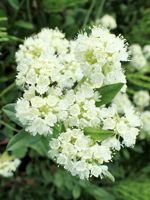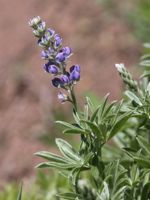Mon-Fri 9am - 5pm Mountain time
Sulphur-Flower Buckwheat vs Silky Lupine
Eriogonum umbellatum
Lupinus sericeus
CUSTOM GROW
CUSTOM GROW
Sulphur-Flower Buckwheat is a native perennial wildflower known for its dense clusters of cream to yellow flowers. The long-lasting blooms persist from late spring into summer, providing an extended nectar source for a variety of pollinators. The flower buds are often red-tinted before opening. As the blooms age, they shift to orange or red, adding seasonal interest and making them well-suited to dried flower arrangements. Its seeds are also eaten by birds, adding to its ecological value.
Depending on climate and conditions, Sulphur-Flower Buckwheat may be evergreen to semi-evergreen, or its foliage may turn red during fall. Its deep roots and spreading growth stabilize rocky or sandy soils, making it useful for erosion control. Exceptionally hardy once established, it requires little care and thrives in challenging environments, making it an excellent choice for pollinator gardens, naturalization, and ecological restoration projects.
Silky Lupine is a native perennial wildflower known for its upright spikes of blue to violet flowers. Blooming from late spring into summer, the nectar-rich, showy blossoms attract a variety of pollinators, especially bees and butterflies. The plant’s fine, silky foliage provides soft texture and visual interest, enhancing landscapes throughout the growing season.
Silky Lupine is a nitrogen-fixing plant that enriches soils and supports surrounding vegetation. Its deep roots stabilize soil, and it spreads naturally by ejecting seeds from drying pods. If spread isn’t desired, new seedlings are easy to remove. While it is foraged by some wild animals, it contains alkaloids that are toxic to livestock. Silky Lupine is well-suited to pollinator gardens, naturalization plantings, erosion control, and ecological restoration projects.
Sulphur-Flower Buckwheat Quick Facts
Silky Lupine Quick Facts
Toxicity: toxic to sheep and other livestock

